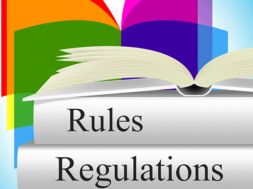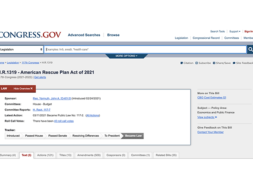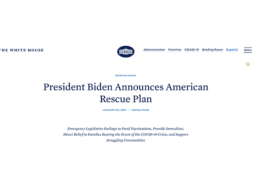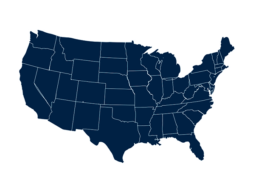
Web Accessibility in Education Must Be a Higher Priority
By Jennifer Flood JD, President and CEO, National Compliance Group
Making school buildings accessible to the disabled has been mandatory for many years and is now a second thought. What many schools do not know is that as their schools expand into the online space by way of courses, content for classes, and even enrollment, those web properties and related material must be accessible to those with disabilities. This article will discuss the legal background, penalties for non-compliance and what we can do moving forward to reach, include and educate all students in the United States.
The Americans with Disabilities Act
The ADA was enacted in 1990 to prohibit discrimination and ensure equal opportunity for citizens with disabilities in employment, state and local government services, public accommodations, commercial facilities and transportation. It has been updated over the last 26 years to grow with changes across industries. We are all very aware that a new building requires handrails, elevators, handicapped parking stalls, and other such building accessibility requirements. But as we become a more advanced society and create new technologies, we cannot leave our disabled population behind. The ADA updates on a fairly consistent basis to include updated technology and new methodologies. The latest such change references web accessibility and the internet. As times have changed, so has the way we interact with retailers, education, banking, employment and many other conveniences we enjoy as technology advances. The Department of Justice, the agency who oversees enforcement of the ADA, has made updates to the Act to include improvements to web accessibility. These changes have been long coming and a source of frustration for the disabled community and their partner agencies. The DOJ has delayed the updates to the ADA for years now, and have most recently delayed the rules on websites until early 2018. This has caused the incorrect assumption that nothing about web accessibility need yet be done. This is not the case as explained in a later section.
The ADA applies to several areas, but one of the broadest applications is to Public Accommodations. Public Accommodations are defined as: inn/hotel/motel, restaurant/bar or other establishment serving food and drink, movie theaters, auditoriums, grocery stores, retail stores, bakeries, laundromat, drycleaners, banks, hospitals, museums library, galleries, parks, zoos, amusement parks, nursery, day care centers, gymnasiums, health spas, bowling alleys, convention centers, lecture halls, travel stations, clothing stores, golf courses, elementary, secondary, undergraduate, or postgraduate private school or other place of education.
It may be of interest to the readers of this particular article, that while irrelevant for the most part, the ADA was authored by Sen. Tom Harkin, and Iowa Democrat. His name may ring a bell for many of Career Education Review’s readers.
The Rehabilitation Act
The Rehabilitation Act prohibits discrimination on the basis of disability by federal agencies, in programs receiving Federal financial assistance, in Federal employment, and in the employment practices of Federal contractors.
This means that the Americans with Disabilities Act as well as the Rehabilitation Act both apply to postsecondary schools whether public or private in nature.
Section 504 of the Rehabilitation Act states, in part, that no qualified individual with a disability shall be excluded from, denied the benefits of, or be subjected to discrimination under any program or activity that receives federal financial assistance. Therefore, if an institution is Title IV eligible, it will fall under Section 504. Additionally, if the institution provides online courses with inaccessible content, or references online guides, classes or websites that are inaccessible to disabled students (or potential students) the school is in violation of Section 504 of the Rehabilitation Act. This includes the school’s own public facing website.
This means that while the web accessibility rules for all businesses in the United States are slated for 2018, web accessibility is a requirement for government websites as well as those institutions receiving government funding. Blind and low vision users, deaf persons and those with physical disabilities must be able to use your websites, consume course material no matter how it is delivered, view online classes and all other methods of learning or inclusion used for non-disabled students. Those who feel they have been discriminated against under the Rehabilitation Act may file suits individually.
Proposed legislation and legal issues
As stated in previous sections, updates to web accessibility are slated for early 2018 after repeated delays. This in no way has stopped lawsuits from being filed for non-compliance. The ADA and The Rehabilitation Act both have sections on enforcement and private rights of action. Both allow private suits for individuals who have been discriminated against as a result of a covered entity’s actions or inactions. This has resulted in an explosion of lawsuits. Plaintiff’s firms are lining up to find wronged parties, or better yet, engage with a single plaintiff that “tests” the web accessibility of any entity covered under the ADA or Section 504. If that person encounters a barrier to posted online content, whether video, classes, advertisements, inquiry forms, privacy policies, terms and service, cookies statements, etc., the law firm will file suit following a long and drawn out attempt at cash settlement.
Additionally, The Department of Justice, The National Federation for the Blind, The National Association of the Deaf and many other organizations and agencies will file demands and lawsuits on behalf of entire classes of disabled people if it is perceived that discrimination has occurred.
Since web accessibility laws have not been updated by the DOJ, and will not be until some unclear date in 2018, defense attorneys have filed for Summary Judgement to have these cases tossed from Federal Court because no law appears to exist at the time of the suit that the defendants could have violated. This is simply not the case.
In unprecedented fashion, the DOJ inserted themselves in the federal cases and advised the Court that although the new web accessibility rules are not enacted, the Court should act as if they are and were at the time the plaintiff incurred the claimed discrimination.
There is no other time in recent history that this has occurred. A good analogy to this would be if you were ticketed for going 65 in a 55 miles per hour zone. All signs said you could drive 65 miles per hour, but the officer who gave you the ticket said that the law was changing next year to 55 miles per hour, so they intended to enforce that change now. The time is NOW to make sure the visually, hearing and physically disabled can navigate and consume your web content, courses and referenced materials.
The DOJ references WCAG 2.0 or Web Accessibility Guidelines 2.0 as the resource that will be adopted in full for the updated web accessibility rules in 2018. It should be noted that these rules (WCAG 2.0) have already been wholly adopted by all of Europe in the past year, so we have some catching up to do, but we also have a clear example of what compliance with these rules will look like.
Conclusion
It may seem to some schools and other organizations that this is a daunting task and the government is too overreaching. This is understandable considering our current political climate, but accessibility is an age old issue for the Department of Justice. Most cases filed are because a company did not put in enough handicap parking stalls, or ramps were installed incorrectly, and even elevator issues in courthouses.
Accessibility on the web is the logical next step because most of us use online services for convenience and as an everyday way of life.
As technology improves, so must our efforts to include the disabled. I was fortunate enough to attend the annual convention for The National Federation for the Blind over the summer. Experiencing the use of technology by the blind and visually impaired was both inspiring and maddening. We have wonderful innovators in the United States and we have significant room for improvement. Imagine the difficulty in applying for jobs, buying goods and services online, paying bills, or enrolling in school and not being able to navigate a website with a mouse or have a reader unable to transmit the words on the website because of incompatible code. I met with college professors, business owners, students, and many others at the conference. The overwhelming majority of people told me that they just wanted to be able to share the same experiences as everyone else in the world. We are an innovative and resourceful group. I think we can meet this challenge.
If you have questions about any of the information in the article or if you are interested in getting help to make your content compliant, please contact National Compliance Group.
JENNIFER FLOOD is the President and CEO of National Compliance Group, a compliance technology company located in Kansas City. She is the national authority on regulatory compliance in higher education, providing compliance services and consulting for hundreds of schools across the United States. Jennifer sits on numerous state boards for governmental and regulatory affairs and has been recognized locally, regionally and nationally for her work in compliance. She is also the host of The Business of Compliance Podcast.
Jennifer is a fearless advocate for the career education sector and the role schools play in providing educational services for students from nontraditional backgrounds. In her spare time she serves as a volunteer with the Kansas Department of Corrections in a self-help group run by inmates at Lansing Correctional Facility.
If you have questions about compliance issues at your school, or need clarification on regulations from an operational perspective, contact Jennifer at jflood@nationalcompliancegroup.com.
Contact Information: Jennifer Flood, JD // President and CEO // National Compliance Group // 620-504-2058 // jflood@nationalcompliancegroup.com // Social Media: Twitter: @jenniferflood79 and @natcompgroup, LinkedIn: www.linkedin.com/in/jenniferfloodjd, Facebook: https://www.facebook.com/nationalcompliancegroup/











